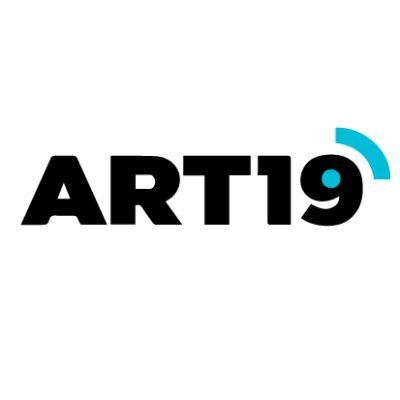Mock sample for your project: Books API
Integrate with "Books API" from nytimes.com in no time with Mockoon's ready to use mock sample

Books API
Version: 3.0.0
Integrate third-party APIs faster by using "Books API" ready-to-use mock sample. Mocking this API will help you accelerate your development lifecycles and improves your integration tests' quality and reliability by accounting for random failures, slow response time, etc.
It also helps reduce your dependency on third-party APIs: no more accounts to create, API keys to provision, accesses to configure, unplanned downtime, etc.
Description
The Books API provides information about book reviews and The New York Times bestsellers lists.
Other APIs by nytimes.com

Top Stories
The Top Stories API provides lists of articles and associated images by section.

Archive API
The Archive API provides lists of NYT articles by month going back to 1851. You can use it to build your own local database of NYT article metadata.

Times Newswire API
With the Times Newswire API, you can get links and metadata for Times articles and blog posts as soon as they are published on NYTimes.com. The Times Newswire API provides an up-to-the-minute stream of published items.

Article Search API
With the Article Search API, you can search New York Times articles from Sept. 18, 1851 to today, retrieving headlines, abstracts, lead paragraphs, links to associated multimedia and other article metadata.
Note: In URI examples and field names, italics indicate placeholders for variables or values. Brackets [ ] indicate optional items. Parentheses ( ) are not a convention — when URIs include parentheses, interpret them literally.
Note: In URI examples and field names, italics indicate placeholders for variables or values. Brackets [ ] indicate optional items. Parentheses ( ) are not a convention — when URIs include parentheses, interpret them literally.

Community API
Get access to comments from registered users on New York Times articles. NOTE: This API is deprecated.

Geographic API
The Geographic API extends the Semantic API, using a linked data approach to enhance location concepts used in The New York Times' controlled vocabulary and data resources which combine them with the GeoNames database, an authoritative and free to use database of global geographical places, names and features.

Movie Reviews API
With the Movie Reviews API, you can search New York Times movie reviews by keyword and get lists of NYT Critics' Picks.

Semantic API
The Semantic API complements the Articles API. With the Semantic API, you get access to the long list of people, places, organizations and other locations, entities and descriptors that make up the controlled vocabulary used as metadata by The New York Times (sometimes referred to as Times Tags and used for Times Topics pages).
The Semantic API uses concepts which are, by definition, terms in The New York Times controlled vocabulary. Like the way facets are used in the Articles API, concepts are a good way to uncover articles of interest in The New York Times archive, and at the same time, limit the scope and number of those articles. The Semantic API maps to external semantic data resources, in a fashion consistent with the idea of linked data. The Semantic API also provides combination and relationship information to other, similar concepts in The New York Times controlled vocabulary.
The Semantic API uses concepts which are, by definition, terms in The New York Times controlled vocabulary. Like the way facets are used in the Articles API, concepts are a good way to uncover articles of interest in The New York Times archive, and at the same time, limit the scope and number of those articles. The Semantic API maps to external semantic data resources, in a fashion consistent with the idea of linked data. The Semantic API also provides combination and relationship information to other, similar concepts in The New York Times controlled vocabulary.

TimesTags API
With the TimesTags API, you can mine the riches of the New York Times tag set. The TimesTags service matches your query to the controlled vocabularies that fuel NYTimes.com metadata. You supply a string of characters, and the service returns a ranked list of suggested terms.
Other APIs in the same category
Business Profile Performance API
The Business Profile Performance API allows merchants to fetch performance reports about their business profile on Google.

Google Workspace Alert Center API
Manages alerts on issues affecting your domain. Note: The current version of this API (v1beta1) is available to all Google Workspace customers.

Abusive Experience Report API
Views Abusive Experience Report data, and gets a list of sites that have a significant number of abusive experiences.

Getty Images
gettyimages.com

Google Play Custom App Publishing API
API to create and publish custom Android apps
My Business Place Actions API
The My Business Place Actions API provides an interface for managing place action links of a location on Google.

ART19 Content API Documentation
art19.com
The ART19 Content API conforms to the JSON:API specification.
API requests MUST use the HTTP Accept header:
Accept: application/vnd.api+json
API requests MUST be authenticated using the HTTP Authorization header:
Authorization: Token token="your-token", credential="your-credential"
General Notes
Some query parameters use unencoded [ and ] characters simply for readability. Defaults, examples, and
possible values are additionally rendered in double quotes for readability. In practice, query parameters should
not have quotes around the values (e.g., foo=bar is valid, not foo="bar"), and both query parameter keys
and values must be percent-encoded, per the requirements in RFC 3986 § 3.4.
Rate Limiting
In order to provide a fair distribution of available resources, all API calls are subject to rate limits.
If you exceed the number of API calls per minute granted to your credential, a 429 Too Many Requests
error response will be returned.
In that case, a Retry-After header MAY be included in the response, describing the number of seconds
after which a request can be retried.
If you run into a high number of 429 errors, please reach out to ART19 Support to adjust your rate limit.
Example
In the following example the request can be retried after waiting for 21 seconds:
HTTP/1.1 429 Too Many Requests
Content-Type: text/html
Retry-After: 21
Pagination
Requests to collection endpoints SHOULD provide pagination parameters.
Some endpoints REQUIRE pagination parameters to be provided.
Whenever pagination is provided, it MUST be valid.
Failing to provide pagination when it is required or providing wrong or incomplete pagination
always results in a 400 Bad Request error response.
The page numbering starts with 1 and the maximum page size (if not otherwise documented
on an endpoint) is 100. Pagination MUST NOT be specified if requesting a list of IDs (using an ids[] parameter).
Providing invalid values for page number or page size, as well as providing only a page number or only a page size,
is considered an error. Pagination is provided like this:
page[number]=1&page[size]=25
Responses conform to the JSON:API specification's pagination section
by including pagination links. Your requested page size will be carried into the pagination links.
Sorting
Requests to collection endpoints usually accept a sort parameter. Please refer to the
JSON:API Specification's sorting section for further details.
Relationship Linking
Currently, resources return all of their relationships, in no particular order, pursuant to how relationships
should be returned according to the JSON:API specification. Consumers of this API
MUST NOT make assumptions about the order of these collections. Even though this data is not currently paginated, consumers MUST support
paginating relationships per the JSON:API specification if this data is important for their application.
API requests MUST use the HTTP Accept header:
Accept: application/vnd.api+json
API requests MUST be authenticated using the HTTP Authorization header:
Authorization: Token token="your-token", credential="your-credential"
General Notes
Some query parameters use unencoded [ and ] characters simply for readability. Defaults, examples, and
possible values are additionally rendered in double quotes for readability. In practice, query parameters should
not have quotes around the values (e.g., foo=bar is valid, not foo="bar"), and both query parameter keys
and values must be percent-encoded, per the requirements in RFC 3986 § 3.4.
Rate Limiting
In order to provide a fair distribution of available resources, all API calls are subject to rate limits.
If you exceed the number of API calls per minute granted to your credential, a 429 Too Many Requests
error response will be returned.
In that case, a Retry-After header MAY be included in the response, describing the number of seconds
after which a request can be retried.
If you run into a high number of 429 errors, please reach out to ART19 Support to adjust your rate limit.
Example
In the following example the request can be retried after waiting for 21 seconds:
HTTP/1.1 429 Too Many Requests
Content-Type: text/html
Retry-After: 21
Pagination
Requests to collection endpoints SHOULD provide pagination parameters.
Some endpoints REQUIRE pagination parameters to be provided.
Whenever pagination is provided, it MUST be valid.
Failing to provide pagination when it is required or providing wrong or incomplete pagination
always results in a 400 Bad Request error response.
The page numbering starts with 1 and the maximum page size (if not otherwise documented
on an endpoint) is 100. Pagination MUST NOT be specified if requesting a list of IDs (using an ids[] parameter).
Providing invalid values for page number or page size, as well as providing only a page number or only a page size,
is considered an error. Pagination is provided like this:
page[number]=1&page[size]=25
Responses conform to the JSON:API specification's pagination section
by including pagination links. Your requested page size will be carried into the pagination links.
Sorting
Requests to collection endpoints usually accept a sort parameter. Please refer to the
JSON:API Specification's sorting section for further details.
Relationship Linking
Currently, resources return all of their relationships, in no particular order, pursuant to how relationships
should be returned according to the JSON:API specification. Consumers of this API
MUST NOT make assumptions about the order of these collections. Even though this data is not currently paginated, consumers MUST support
paginating relationships per the JSON:API specification if this data is important for their application.

Freesound
With the Freesound APIv2 you can browse, search, and retrieve information about Freesound users, packs, and the sounds themselves of course. You can find similar sounds to a given target (based on content analysis) and retrieve automatically extracted features from audio files, as well as perform advanced queries combining content analysis features and other metadata (tags, etc...). With the Freesound APIv2, you can also upload, comment, rate and bookmark sounds!
Recommendations AI (Beta)
Note that we now highly recommend new customers to use Retail API, which incorporates the GA version of the Recommendations AI funtionalities. To enable Retail API, please visit https://console.cloud.google.com/apis/library/retail.googleapis.com. The Recommendations AI service enables customers to build end-to-end personalized recommendation systems without requiring a high level of expertise in machine learning, recommendation system, or Google Cloud.

Google Play Android Developer API
Lets Android application developers access their Google Play accounts. At a high level, the expected workflow is to "insert" an Edit, make changes as necessary, and then "commit" it.

Cloud Source Repositories API
Accesses source code repositories hosted by Google.

